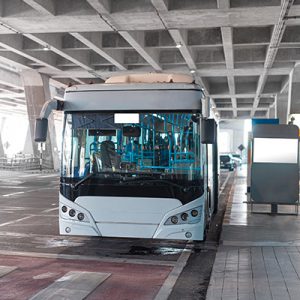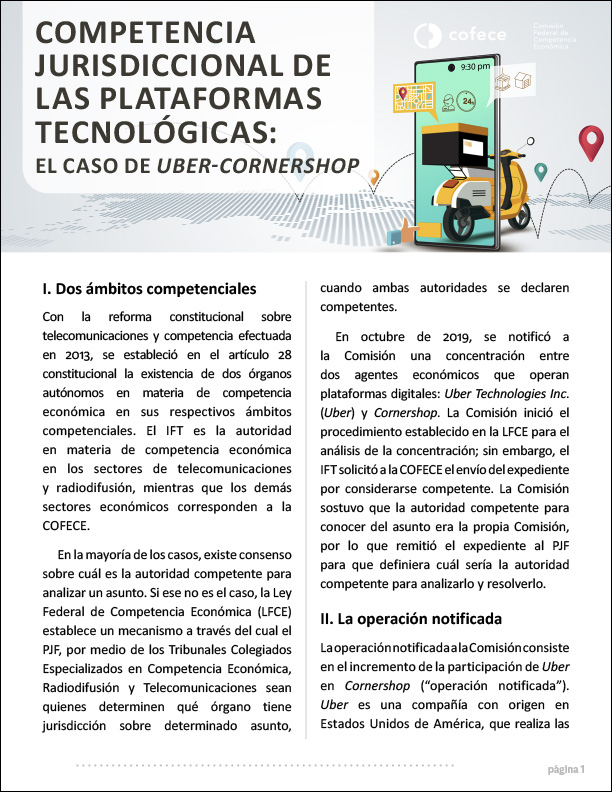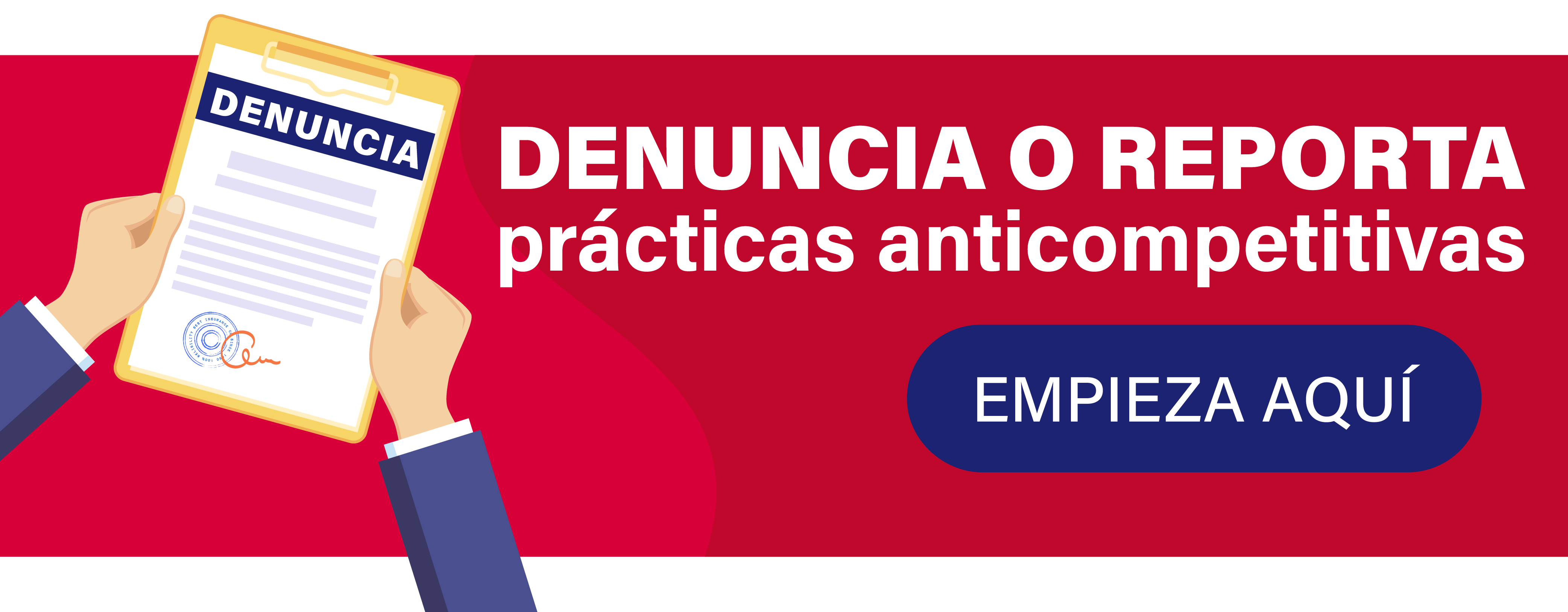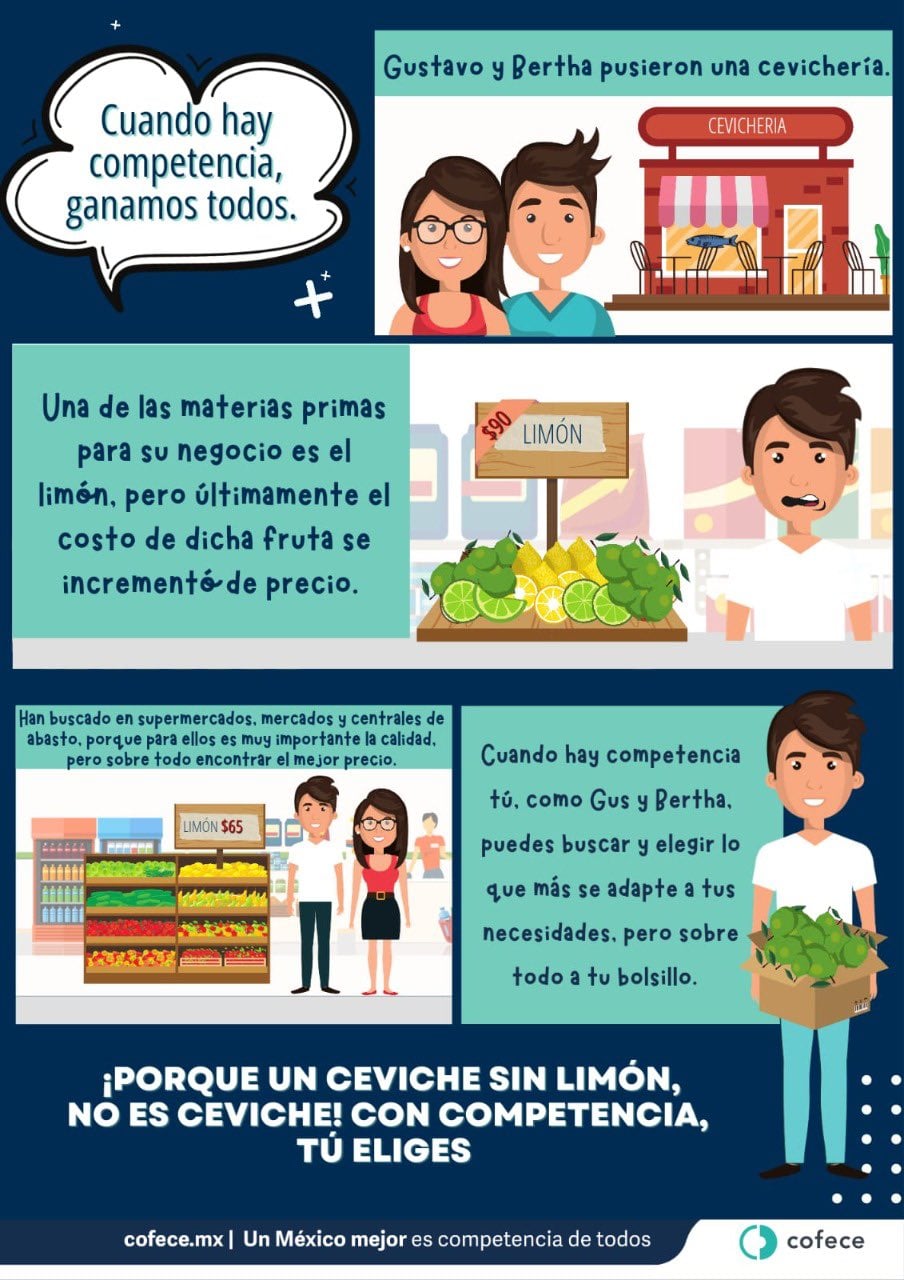¿Qué estás buscando?
¿Qué estás buscando?
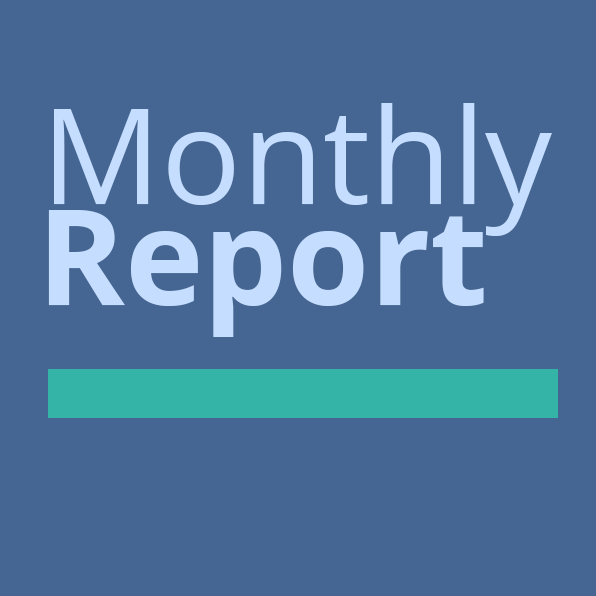
March 2022
Frontpage
Anticompetitive Conducts
Opiniones
Public Consultation
Recommended Reading
FRONTPAGE
Cofece’s Preliminary Opinion identifies barriers to competition along the value chain of jet fuel in Mexico
Cofece’s Preliminary Opinion identifies barriers to competition along the value chain of jet fuel in Mexico


The Investigative Authority (AI) of the Federal Economic Competition Commission (Cofece of Commission) published an extract from the preliminary opinion of the file IEBC-002-2019 in which it concluded, preliminarily, the lack of effective competition conditions in various links of the value chain of jet fuel in Mexico. The foregoing, due to the probable existence of barriers that prevent the entry and growth of participants in this market.
Jet fuel is the main input for air transport, as it represents between 25% and 30% of the operating expenses of airlines, according to reports of the Mexican Stock Exchange. Therefore, it is important that there are conditions to favor this means of transport for the transfer of passengers and goods.
The AI preliminarily determined the lack of effective competition conditions in the following markets:
- Primary commercialization which is carried out by producers and/or importers of the fuel and whose clients are secondary sellers of the market of jet fuel at the national level. In this market, Pemex Transformación Industrial (Pemex TRI) holds a participation of 98%.
- External storage (outside airports) is a service mainly hired by primary sellers to deliver jet fuel to airport terminals. In this market, with a regional scope, few competitors are identified and Pemex Logística is the main storekeeper.
- Secondary commercialization is carried out at the national level by sellers that do not produce or import jet fuel. It implies purchase and sale, and management of services directly related to airlines. In this market, Aeropuertos y Servicios Auxiliares (ASA) and Worldwide Fuel Services (WFS) have 93% of the participation.
- Internal storage (inside airports), is a service hired by secondary sellers to supply air carriers. In these markets, ASA is the sole provider of the service in various air terminals at the national level.
- Retail is a service that consists in the final delivery of the jet fuel to the wing of the aircraft. ASA is also the sole provider of the service at multiple airports.
From this moment on, economic agents with an interest in this procedure may present the statements and arguments they deem appropriate, in order for the Board of the Commission to issue the final resolution of this case.
ANTICOMPETITIVE CONDUCTS
Cofece fines the AICM for preventing an economic agent from providing the public service of federal land passenger transport and establishing exclusive advantages in favor of two permit holders
The Commission resolved that the Mexico City International Airport (AICM, per its initials in Spanish) committed a relative monopolistic practice in the modality of refusal to deal, by which it prevented an economic agent from providing the federal land passenger transport service, in the modality of an integral bus and/or van, with origin or destination to the AICM. It should be noted that the airport had been previously sanctioned by Cofece for carrying out a monopolistic practice, reason for which it is considered a recidivist, for which the Board of the Commission imposed a fine of 848 million 888 thousand 633 Mexican pesos; moreover, it ordered the suppression of the conduct.
The Board of the Commission considered that the AICM has substantial power in the market that corresponds to the service of access to the Airport for the provision of the federal land passenger transport service since, among other issues, it is the sole provider and there are no substitutes.
Cofece may request from the AICM, for a period of five years and at any time, the documentation that proves compliance with the obligations imposed to verify that the conduct has been suppressed.
Once the resolution has been notified to the AICM, the economic agent has the right to go before the Judicial Power of the Federation to review the actions of the Commission through an indirect amparo trial.
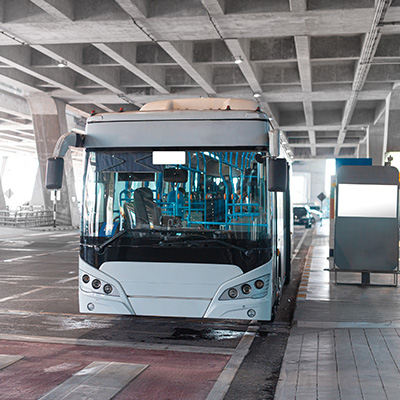
The Commission resolved that the Mexico City International Airport (AICM, per its initials in Spanish) committed a relative monopolistic practice in the modality of refusal to deal, by which it prevented an economic agent from providing the federal land passenger transport service, in the modality of an integral bus and/or van, with origin or destination to the AICM. It should be noted that the airport had been previously sanctioned by Cofece for carrying out a monopolistic practice, reason for which it is considered a recidivist, for which the Board of the Commission imposed a fine of 848 million 888 thousand 633 Mexican pesos; moreover, it ordered the suppression of the conduct.
The Board of the Commission considered that the AICM has substantial power in the market that corresponds to the service of access to the Airport for the provision of the federal land passenger transport service since, among other issues, it is the sole provider and there are no substitutes.
Cofece may request from the AICM, for a period of five years and at any time, the documentation that proves compliance with the obligations imposed to verify that the conduct has been suppressed.
Once the resolution has been notified to the AICM, the economic agent has the right to go before the Judicial Power of the Federation to review the actions of the Commission through an indirect amparo trial.
Initiations of investigations
Cofece investigates possible relative monopolistic practices in the market of production, distribution and commercialization of household insecticides in national territory
The Investigative Authority of Cofece published in the Federal Official Gazette and on its website, the notice of initiation of an investigation by complaint for the possible realization of relative monopolistic practices in the market of production, distribution and commercialization of household insecticides in national territory.
Insecticides are relevant products for households because, by controlling insects, diseases or damage to health can be prevented. Insect-borne diseases are a major public health problem in the country, some of them are dengue, zika, chikungunya, malaria and Chagas disease.
This investigation (under file number DE-010-2021) should not be understood as a prejudgment on the responsibility of any economic agent, since so far no violations to the Federal Economic Competition Law have been definitively identified, nor the subject(s) who, if applicable, would be considered as probable responsible at the end of this investigation.
If by the end of the investigation no elements that presume the realization of said anticompetitive practice are found, the Board of Cofece may resolve its closure. In case that elements that presume an infringement of the Law are found, those who result probable responsible will be called to a trial-like procedure to present their defense.

The Investigative Authority of Cofece published in the Federal Official Gazette and on its website, the notice of initiation of an investigation by complaint for the possible realization of relative monopolistic practices in the market of production, distribution and commercialization of household insecticides in national territory.
Insecticides are relevant products for households because, by controlling insects, diseases or damage to health can be prevented. Insect-borne diseases are a major public health problem in the country, some of them are dengue, zika, chikungunya, malaria and Chagas disease.
This investigation (under file number DE-010-2021) should not be understood as a prejudgment on the responsibility of any economic agent, since so far no violations to the Federal Economic Competition Law have been definitively identified, nor the subject(s) who, if applicable, would be considered as probable responsible at the end of this investigation.
If by the end of the investigation no elements that presume the realization of said anticompetitive practice are found, the Board of Cofece may resolve its closure. In case that elements that presume an infringement of the Law are found, those who result probable responsible will be called to a trial-like procedure to present their defense.
Cofece investigates possible barriers to competition and essential inputs in the market of retail e-commerce
The Investigative Authority published in the Federal Official Gazette (DOF, per its initials in Spanish) the initiation of an investigation to identify and, if it is the case, determine the probable existence of barriers to competition and free market access, as well as possible essential facilities in the market of retail e-commerce in the national territory. This is the first investigation in digital markets carried out by the Investigative Authority of Cofece through a special procedure.
E-commerce is understood as the purchase and sale of goods over the internet through a method to receive or place orders. Since the start of the Covid-19 pandemic, the value of retail e-commerce in Mexico has increased. In 2019, sales amounted to approximately 400 billion Mexican pesos, while in 2021 these exceeded 540 billion Mexican pesos. Currently, a growing number of consumers use this option to purchase goods. For this reason, it is necessary to monitor that the market operates and develops under competition conditions, so that consumers can choose from among more options, the one that best suits their needs.
The Federal Economic Competition Law establishes that, once the procedures provided for this type of investigation are concluded, if elements to determine the existence of barriers to competition are found, the Board of Cofece could: i) order the economic agent to eliminate the barriers that unduly affect the competition process; ii) issue recommendations to public authorities in case there are legal provisions that unduly prevent or distort competition and free market access; iii) determine the existence of essential facilities and, if appropriate, issue guidelines for their regulation; or iv) order the divestiture of assets, rights, social parts or stocks of the involved economic agent.

The Investigative Authority published in the Federal Official Gazette (DOF, per its initials in Spanish) the initiation of an investigation to identify and, if it is the case, determine the probable existence of barriers to competition and free market access, as well as possible essential facilities in the market of retail e-commerce in the national territory. This is the first investigation in digital markets carried out by the Investigative Authority of Cofece through a special procedure.
E-commerce is understood as the purchase and sale of goods over the internet through a method to receive or place orders. Since the start of the Covid-19 pandemic, the value of retail e-commerce in Mexico has increased. In 2019, sales amounted to approximately 400 billion Mexican pesos, while in 2021 these exceeded 540 billion Mexican pesos. Currently, a growing number of consumers use this option to purchase goods. For this reason, it is necessary to monitor that the market operates and develops under competition conditions, so that consumers can choose from among more options, the one that best suits their needs.
The Federal Economic Competition Law establishes that, once the procedures provided for this type of investigation are concluded, if elements to determine the existence of barriers to competition are found, the Board of Cofece could: i) order the economic agent to eliminate the barriers that unduly affect the competition process; ii) issue recommendations to public authorities in case there are legal provisions that unduly prevent or distort competition and free market access; iii) determine the existence of essential facilities and, if appropriate, issue guidelines for their regulation; or iv) order the divestiture of assets, rights, social parts or stocks of the involved economic agent.
Cofece notifies various economic agents of a statement of probable responsibility for a possible collusion in the sale of tortillas in Huixtla, Chiapas
The Commission notified a statement of probable responsibility to various economic agents as it found evidence of a probable absolute monopolistic practice in the market of production, distribution and commercialization of corn tortillas in the municipality of Huixtla, Chiapas.
After concluding the inquiry, the Investigative Authority of COFECE issued a statement on the possible existence of an agreement to manipulate the prices and supply of corn tortilla by establishing the obligation not to produce, process, distribute or commercialize a restricted amount of it.
This investigation (file number DE-032-2019) is relevant because this type of illegal practices, also known as collusion, may have adverse effects on the welfare of consumers, since tortillas are an important product in the Mexican diet.
As of this moment, those identified for their probable responsibility in the aforementioned monopolistic conducts have the right to argue in their favor and offer evidence for their defense. Once these statements have been made, the evidence has been submitted and the corresponding arguments have been presented, the Board of Commissioners of COFECE will resolve in accordance with the law.

The Commission notified a statement of probable responsibility to various economic agents as it found evidence of a probable absolute monopolistic practice in the market of production, distribution and commercialization of corn tortillas in the municipality of Huixtla, Chiapas.
After concluding the inquiry, the Investigative Authority of COFECE issued a statement on the possible existence of an agreement to manipulate the prices and supply of corn tortilla by establishing the obligation not to produce, process, distribute or commercialize a restricted amount of it.
This investigation (file number DE-032-2019) is relevant because this type of illegal practices, also known as collusion, may have adverse effects on the welfare of consumers, since tortillas are an important product in the Mexican diet.
As of this moment, those identified for their probable responsibility in the aforementioned monopolistic conducts have the right to argue in their favor and offer evidence for their defense. Once these statements have been made, the evidence has been submitted and the corresponding arguments have been presented, the Board of Commissioners of COFECE will resolve in accordance with the law.
Cofece sanctions IAC Holdco, GCM and Franklin, companies that participate in the market for auto parts, for not notifying two concentrations
The Board of Cofece sanctioned the omission of notifying two concentrations before carrying them out, an obligation established in the Federal Economic Competition Law (LFCE, per its initials in Spanish).
In April 2018, GCM carried out the purchase and accumulation of assets and/or control of IAC Holdco and its Mexican subsidiaries. In April 2019, Franklin Mutual Advisers sold to GCM shares from IACNA, firm that is the owner of shares of IAC Holdco, which involved another acquisition by GCM over IAC Holdco and its subsidiaries.
Both operations exceeded the monetary thresholds provided by the LFCE to make its notification mandatory prior to its completion. Not notifying prevented Cofece from analyzing in a timely and preventive manner the impact and risk that said concentrations could generate on competition and free market access to the involved markets.
Once the matter has been resolved and the parties have been notified, the sanctioned economic agents have the right to appear before the Judicial Power of the Federation to review the legality of the actions of Cofece.

The Board of Cofece sanctioned the omission of notifying two concentrations before carrying them out, an obligation established in the Federal Economic Competition Law (LFCE, per its initials in Spanish).
In April 2018, GCM carried out the purchase and accumulation of assets and/or control of IAC Holdco and its Mexican subsidiaries. In April 2019, Franklin Mutual Advisers sold to GCM shares from IACNA, firm that is the owner of shares of IAC Holdco, which involved another acquisition by GCM over IAC Holdco and its subsidiaries.
Both operations exceeded the monetary thresholds provided by the LFCE to make its notification mandatory prior to its completion. Not notifying prevented Cofece from analyzing in a timely and preventive manner the impact and risk that said concentrations could generate on competition and free market access to the involved markets.
Once the matter has been resolved and the parties have been notified, the sanctioned economic agents have the right to appear before the Judicial Power of the Federation to review the legality of the actions of Cofece.
OPINIONS
Due to the risks of affecting consumers and companies, Cofece recommends not to approve the constitutional reform initiative in electricity matters
The Board of Cofece submitted to the Congress of the Union an opinion in which it recommends not to approve the Initiative with a Draft Decree by which Articles 25, 27 and 28 of the Political Constitution of the United Mexican States are reformed, in energy matters (Initiative) and reiterates the importance of maintaining and consolidating an electricity model based on competition, accompanied by the regulatory elements that are necessary to safeguard the public interest.
Cofece warns that the Initiative categorically renounces to the model of competition in the generation and supply (commercialization) of electricity, replacing it with a vertically integrated industrial model operated by an unregulated state monopoly, which has been abandoned in many countries due to its inefficiency, inability to meet demand, high costs and negative impact on public finances.
The model proposed in the Initiative represents a setback against social welfare, as, if approved it would imply:
- to establish a monopoly in the whole value chain of the sector, that is, in the generation, transmission, distribution and supply (commercialization) of electricity;
- to create a monopsony (sole buyer) in the purchase of electricity that, in its case, is carried out by the Federal Electricity Commission - Comisión Federal de Electricidad (CFE);
- to dismantle the institutional framework that guards the public interest, unduly transferring to CFE the regulatory and public policy tasks, including the control and planning of the electricity system, as well as the determination of rates; and
- to eliminate different mechanisms that pursue fundamental objectives, such as ensuring the reliability of the system, diversifying the generation mix, seeking equity among the participants, applying neutral and technical regulation, improving the service and motivating investments in more efficient and clean generation technologies.
Summarizing, the Initiative would compromise the efficient operation of the sector in general and its ability to meet present and future needs. This would negatively affect both consumers and companies, the competitiveness of the country and thus is economic growth.
The Commission reiterates that it is essential to make every effort to maintain and develop a competitive, efficient, sustainable and safe electricity sector, since the performance of the rest of the economic sectors and the prosperity of the country depend on it. The Initiative does not contribute to this purpose because, among other things, it renounces to competition and to a regulation that protects the efficient functioning of the markets

The Board of Cofece submitted to the Congress of the Union an opinion in which it recommends not to approve the Initiative with a Draft Decree by which Articles 25, 27 and 28 of the Political Constitution of the United Mexican States are reformed, in energy matters (Initiative) and reiterates the importance of maintaining and consolidating an electricity model based on competition, accompanied by the regulatory elements that are necessary to safeguard the public interest.
Cofece warns that the Initiative categorically renounces to the model of competition in the generation and supply (commercialization) of electricity, replacing it with a vertically integrated industrial model operated by an unregulated state monopoly, which has been abandoned in many countries due to its inefficiency, inability to meet demand, high costs and negative impact on public finances.
The model proposed in the Initiative represents a setback against social welfare, as, if approved it would imply:
- to establish a monopoly in the whole value chain of the sector, that is, in the generation, transmission, distribution and supply (commercialization) of electricity;
- to create a monopsony (sole buyer) in the purchase of electricity that, in its case, is carried out by the Federal Electricity Commission - Comisión Federal de Electricidad (CFE);
- to dismantle the institutional framework that guards the public interest, unduly transferring to CFE the regulatory and public policy tasks, including the control and planning of the electricity system, as well as the determination of rates; and
- to eliminate different mechanisms that pursue fundamental objectives, such as ensuring the reliability of the system, diversifying the generation mix, seeking equity among the participants, applying neutral and technical regulation, improving the service and motivating investments in more efficient and clean generation technologies.
Summarizing, the Initiative would compromise the efficient operation of the sector in general and its ability to meet present and future needs. This would negatively affect both consumers and companies, the competitiveness of the country and thus is economic growth.
The Commission reiterates that it is essential to make every effort to maintain and develop a competitive, efficient, sustainable and safe electricity sector, since the performance of the rest of the economic sectors and the prosperity of the country depend on it. The Initiative does not contribute to this purpose because, among other things, it renounces to competition and to a regulation that protects the efficient functioning of the markets
Cofece makes recommendations that will favor users of taxi and bus services at the Felipe Ángeles International Airport
The Commission analyzed the access system proposed by the Felipe Ángeles International Airport (AIFA or airport) for the provision of land passenger transport services in the modality of taxis and buses. Cofece concluded that the system, unlike the one that prevails in other airports in the country, would be open, would favor a greater supply of providers of these services and would generate incentives for these to provide better price and quality conditions.
The system proposed by the AIFA:
- Would allow the entry of any interested party who meets the applicable requirements on matters of safety and quality, without having to belong to a group of taxi drivers or taxi company
- Does not impose discriminatory treatment or unjustified requirements that grant an exclusive advantage in favor of certain economic agents, or that represent artificial barriers to entry.
However, in the opinion issued by Cofece recommendations were made regarding the scheme proposed by the AIFA to guarantee and increase the benefits of competition for consumers. Among the recommendations, it is proposed to modify some requirements, conditions and rules foreseen for the operation of taxis and buses.
The opinion issued by COFECE is only based on the documents and information provided by the AIFA, which is why the success of the proposed system depends to a large extent on its correct implementation. Likewise, the opinion does not prejudge on the realization of conducts or market structures that could be contrary to the Federal Economic Competition Law.

The Commission analyzed the access system proposed by the Felipe Ángeles International Airport (AIFA or airport) for the provision of land passenger transport services in the modality of taxis and buses. Cofece concluded that the system, unlike the one that prevails in other airports in the country, would be open, would favor a greater supply of providers of these services and would generate incentives for these to provide better price and quality conditions.
The system proposed by the AIFA:
- Would allow the entry of any interested party who meets the applicable requirements on matters of safety and quality, without having to belong to a group of taxi drivers or taxi company
- Does not impose discriminatory treatment or unjustified requirements that grant an exclusive advantage in favor of certain economic agents, or that represent artificial barriers to entry.
However, in the opinion issued by Cofece recommendations were made regarding the scheme proposed by the AIFA to guarantee and increase the benefits of competition for consumers. Among the recommendations, it is proposed to modify some requirements, conditions and rules foreseen for the operation of taxis and buses.
The opinion issued by COFECE is only based on the documents and information provided by the AIFA, which is why the success of the proposed system depends to a large extent on its correct implementation. Likewise, the opinion does not prejudge on the realization of conducts or market structures that could be contrary to the Federal Economic Competition Law.
PUBLIC CONSULTATION
Cofece submits for public consultation its Draft Strategic Plan 2022-2025
The Commission submitted for public consultation its Draft Strategic Plan 2022-2025 (Draft), in which it defines the mission, vision and objectives through which it will fulfill its constitutional mandate for the next four years; the priority economic sectors for its actions, as well as the control and monitoring that it will carry out to report its progress.
The Draft is a part of the Strategic Planning Model that the Commission has implemented. With it, good institutional practices are adopted to fulfill the constitutional mandate for the benefit of consumers.
The Draft identifies eight sectors that will be a priority for the development of its actions: food and beverages, transport and logistics, financial, construction and real estate services, energy, health, public procurement, and digital markets.
For the Commission it is important to have the opinion of members of academia, the private sector, firms of practitioners specialized in economic competition, and society in general. The Draft was submitted for consultation from March 10 to 24, 2022.
The Commission is grateful for the contributions to strengthen the competition policy of the next four years in favor of consumers.

The Commission submitted for public consultation its Draft Strategic Plan 2022-2025 (Draft), in which it defines the mission, vision and objectives through which it will fulfill its constitutional mandate for the next four years; the priority economic sectors for its actions, as well as the control and monitoring that it will carry out to report its progress.
The Draft is a part of the Strategic Planning Model that the Commission has implemented. With it, good institutional practices are adopted to fulfill the constitutional mandate for the benefit of consumers.
The Draft identifies eight sectors that will be a priority for the development of its actions: food and beverages, transport and logistics, financial, construction and real estate services, energy, health, public procurement, and digital markets.
For the Commission it is important to have the opinion of members of academia, the private sector, firms of practitioners specialized in economic competition, and society in general. The Draft was submitted for consultation from March 10 to 24, 2022.
The Commission is grateful for the contributions to strengthen the competition policy of the next four years in favor of consumers.
RECOMMENDED READING
Jurisdictional competence of technological platforms: the Uber-Cornershop case
In October 2019, an operation between two economic agents that operate digital platforms was notified before the Commission: Uber and Cornershop. Cofece initiated the procedure established in the Federal Economic Competition Law for the analysis of the concentration; however, the Federal Telecommunications Institute requested Cofece the delivery of the file as it considered it was competent. The Commission held that itself was the competent authority to rule on the matter, therefore it submitted the file to the Judiciary Power of the Federation for it to define which authority would be competent to analyze and resolve it.
.
BY THE NUMBERS
BY THE NUMBERS
In March, the Commission handled 106 issues, of which 65 correspond to concentrations, 30 to procedures for monopolistic practices and prohibited concentrations, 3 are related to special procedures 1 and 8 are opinions on tender processes, concessions or permits.
Complaints, investigations and trial-like procedures
- Follow-up was made to 6 complaints for anticompetitive conducts, these are still under analysis.
- 20 investigations of monopolistic practices were followed-up, all are ongoing.
- Progress is being made in 4 trial-like procedures, that are still being processed.
- 3 procedures for barriers to competition are being analyzed.
- 1 case to declare competition conditions is still in process
Concentrations
- 65 concentrations were reviewed, of which 27 were authorized 2, 1 was closed after withdrawal, the remaining 37 are still under analysis.
- The amount of the authorized operations is of 280 million 968 thousand Mexican pesos.
Opinions
- Within the framework of the COFECE-Cofemer agreement, 1 opinion was issued on a regulation project with a neutral sense 3.
Amparo trial
- There are 434 accumulated indirect amparo trials in process, of which 336 correspond to matters of economic competition. 10 were concluded: 2 were granted, 3 were denied and 5 dismissed.

